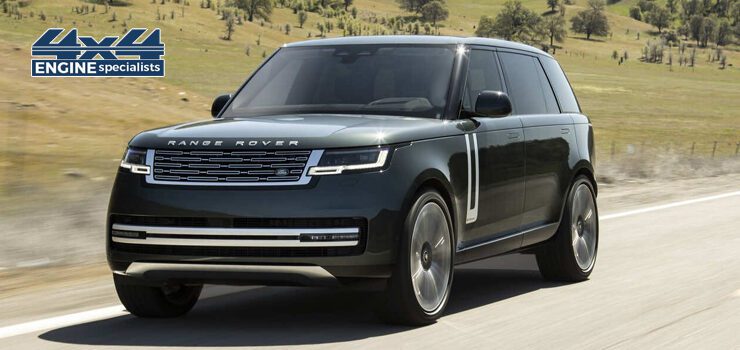In the realm of luxury SUVs, the Range Rover 2.0 engine stands as a pinnacle of engineering prowess, blending power with efficiency. Over recent years, significant advancements have transformed these engines, enhancing performance, fuel economy, and environmental sustainability. We delves into the cutting-edge technologies that define the latest Range Rover 2.0 engines, providing insights into how these innovations are shaping the future of automotive excellence.
Turbocharging and Power Efficiency
Turbocharging has been a cornerstone of Range Rover 2.0 engine advancements. By harnessing exhaust gases to drive a turbine, turbochargers increase air intake, boosting power without a significant increase in engine size. Modern variants employ twin-scroll turbochargers and advanced intercooling systems to optimize efficiency and minimize turbo lag, ensuring responsive acceleration across varying driving conditions.
Lightweight Construction and Material Innovations
Advancements in materials science have enabled Range Rover engineers to reduce engine weight while maintaining structural integrity and durability. High-strength alloys, carbon fiber components, and advanced composites are increasingly integrated into engine design, enhancing performance metrics such as power-to-weight ratio and overall efficiency. These lightweight materials also contribute to improved handling and reduced emissions, aligning with contemporary environmental standards.
Hybridization and Electrification
Embracing the shift towards electrification, Range Rover 2.0 engines have seen integration with hybrid powertrains. Mild hybrid systems utilize regenerative braking and start-stop technology to enhance fuel efficiency and reduce emissions during city driving. Meanwhile, plug-in hybrid variants offer extended electric-only driving ranges, leveraging electric motors in tandem with traditional combustion engines to deliver robust performance alongside enhanced environmental sustainability.
Advanced Fuel Injection Systems
Precision-engineered fuel injection systems play a pivotal role in optimizing combustion efficiency within Range Rover engines. Direct fuel injection techniques, coupled with variable valve timing and sophisticated engine management systems, ensure precise fuel delivery and combustion control. This results in improved fuel economy, reduced emissions, and heightened engine responsiveness across a wide range of driving scenarios.
Intelligent Thermal Management
Effective thermal management is critical to maximizing engine performance and longevity. Range Rover 2.0 engines feature advanced cooling systems that regulate temperatures dynamically, ensuring optimal operating conditions under varying loads and environmental conditions. Adaptive thermal management strategies, including active grille shutters and coolant flow optimization, contribute to improved efficiency and reliability while minimizing environmental impact.
Digitalization and Connectivity
The integration of digital technologies within Range Rover 2.0 engines has revolutionized vehicle connectivity and user experience. Enhanced onboard diagnostics, real-time performance monitoring, and over-the-air software updates enable proactive maintenance and customization options. Furthermore, connectivity features such as smartphone integration and remote vehicle management enhance convenience and accessibility for modern drivers, elevating the driving experience to new heights of sophistication.
Sustainable Practices and Emissions Reduction
In response to global environmental challenges, Range Rover 2.0 engines incorporate advanced emissions control technologies. Selective catalytic reduction (SCR) systems and particulate filters effectively reduce nitrogen oxide (NOx) and particulate matter emissions, ensuring compliance with stringent emissions regulations without compromising performance. Sustainable manufacturing practices and recyclable materials further underscore Range Rover’s commitment to environmental stewardship across their vehicle lineup.
Conclusion
The evolution of Range Rover 2.0 engine technology exemplifies a dedication to innovation, performance excellence, and environmental responsibility. From turbocharged powertrains to hybrid-electric systems and advanced digital integration, these engines represent the forefront of automotive engineering. As technological advancements continue to shape the automotive landscape, Range Rover’s commitment to pushing boundaries ensures that future iterations of their engines will redefine luxury SUV standards, offering drivers uncompromising performance with minimal environmental impact.
This comprehensive exploration highlights how Range Rover 2.0 engines are not just engines but embodiments of cutting-edge technology and sustainable innovation, driving towards a more efficient and connected automotive future.


